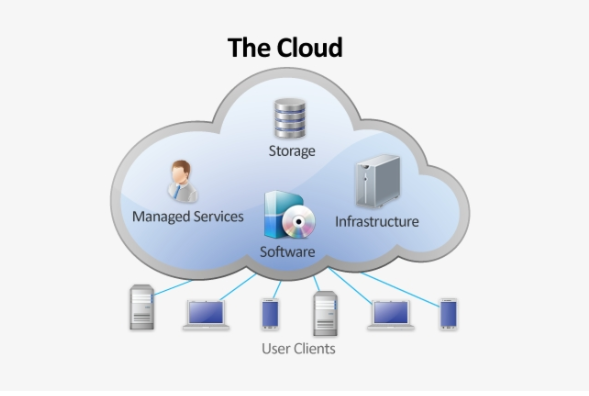The Cloud computing commonly called Cloud is a form of outsourcing of IT resources. The outsourced data and applications are installed on servers at a hosting service provider.

The price of services is generally defined based on four criteria : type of service, type of cloud, storage capacity and bandwidth
1- Storage and Bandwidths
Cloud providers generally propose to their customers formulas with storage capacities in Gigabyte or Terabyte, and bandwidths in Megabit or Gigabit per second.
2 - Types of services
In the Cloud offers, there are three service models that correspond to different needs of businesses. The criteria that differentiate these service models are the application settings allowed, as well as the responsibilitie management sharing between the customer and the Cloud provider.
- Software-as-a-Service (SaaS): the Cloud provider delivers an instance of an application to customers. It is a shared application, with separation between customers data. In this model, the personalizations of applications are limited to the choices offered by the cloud provider. . Example a web server that hosts websites from multiple clients.
- Platform-as-a-Service (PaaS): This is a model in which the service provider offers to customers a package of applications that fit a specific needs. The customer manages some or all of these applications. The service provider manages backups, storage, virtualization and Hardware (servers, networks, etc.). One of the advantages of this model over SaaS is that the customer is not limited in terms of customizations. Example Odoo.sh
- Infrastructure-as-a-Service (IaaS): In this model the customer has the possibility to choose and manage the applications to install. The Cloud provider manages
virtualization and hardware (servers, networks, etc.)
3- Types of Cloud
The types of Cloud offered by providers are defined according to security criteria and bandwidth guarantees offered to Customers.
- Private Cloud: It is a physical infrastructure (Servers, Datacenter, Distributed Networks ...) dedicated to an organization.
- Public Cloud: Unlike the private cloud, in this type of cloud the infrastructure is shared between several Clients. Generally it is renting of VMs (Virtual Machines) or application instances.
- Hybrid Cloud: In this type of Cloud we find mixed private and public Clouds.
- Multicloud: Multiclouds are structures that bring together several Cloud providers.
4- The advantages of the cloud
The Cloud allows companies to have IT solutions available without having to invest in the purchase of hardware and in the maintenance. It also allows to discharge from a part or from all the applications management depending on the chosen service model.
The cloud déploiements also provide higher application availability then the On promise ones. In the most cases, Cloud providers' SLA (Service Level Agreement) guarantees are almost 99.9% uptime and service availability.